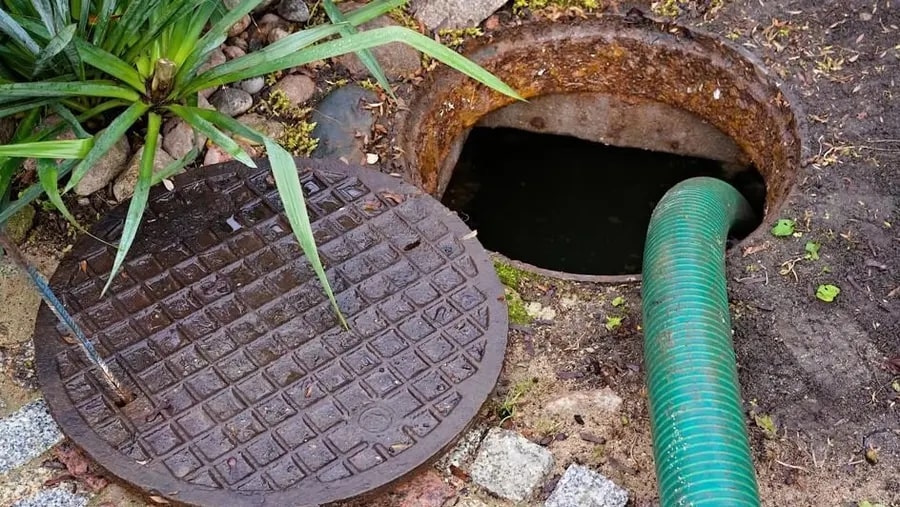Maintaining the various systems in your home is crucial for ensuring long-term functionality and efficiency. Preventive maintenance is not just about fixing issues as they arise but about proactively managing your home’s systems to prevent problems before they occur. This approach can save homeowners significant costs and stress by addressing potential issues early. In this article, we will explore essential preventive maintenance tasks, focusing on two critical areas: septic cleaning and well inspection.
Septic Cleaning
A well-maintained septic system is vital for the health and functionality of your home’s wastewater management. The septic system processes and disposes of household waste, and if not properly maintained, it can lead to costly repairs and health hazards. Regular septic cleaning is an integral part of preventive maintenance for this system.
Importance of Regular Septic Cleaning
Septic tanks collect solid waste and allow it to decompose over time. However, solids can accumulate and eventually lead to clogs or backups if not removed periodically. Regular cleaning helps prevent these issues, ensuring that the system operates efficiently and reduces the risk of sewage backups that could damage your property and pose health risks.
Recommended Cleaning Frequency
The frequency of septic tank cleaning depends on several factors, including the size of the tank, the number of occupants in the household, and the amount of waste generated. Generally, it is advisable to have the septic tank inspected and cleaned every three to five years. However, more frequent cleaning may be necessary for larger households or if you notice signs of trouble, such as slow drainage or unpleasant odors.
Signs of Septic System Problems
Keep an eye out for warning signs that your septic system may require attention. These include:
- Slow Drains: If sinks, showers, or toilets are draining slowly, it could indicate a problem with the septic system.
- Unpleasant Odors: Foul smells around the drain field or in the yard could signal that the septic tank is full or malfunctioning.
- Sewage Backup: Backup into the home or yard can be a serious issue requiring immediate professional intervention.
Professional Septic Services
While some homeowners may attempt to handle minor issues themselves, it is best to rely on professional septic services for cleaning and inspections. Experienced technicians can accurately assess the condition of your septic system, perform necessary cleaning, and identify potential problems before they escalate.
Well Inspection
For homes reliant on well water, regular well inspection is essential to ensure the safety and quality of your water supply. Well systems are complex and require routine checks to maintain optimal performance and water quality.
Importance of Regular Well Inspection
A well inspection involves assessing the condition of the well, including the pump, pressure tank, and water quality. Regular inspections help identify issues such as contamination, mechanical failures, or wear and tear that could affect the safety and reliability of your water supply.
Recommended Inspection Frequency
It is generally recommended to have your well inspected at least once a year. However, if you notice changes in water quality or experience issues with the water supply, more frequent inspections may be necessary. Regular inspections help ensure that the well continues to provide clean and safe water.
Key Areas of Well Inspection
- Water Quality Testing: Testing for contaminants such as bacteria, nitrates, and other harmful substances is crucial for ensuring safe drinking water.
- Pump and Pressure Tank: Inspecting the well pump and pressure tank for signs of wear or malfunction can prevent issues that might disrupt your water supply.
- Well Structure: Checking the condition of the well casing and ensuring that it is properly sealed helps prevent contamination from surface water.
Professional Well Services
Just as with septic systems, professional services are recommended for well inspections. Qualified well technicians can perform comprehensive evaluations, address any identified issues, and ensure that your well remains in good working condition.
Conclusion
Preventive maintenance is key to keeping your home systems running smoothly and efficiently. By regularly scheduling septic cleaning and well inspections, homeowners can address potential issues before they become major problems, ensuring the long-term health and functionality of their home systems. Investing in these essential maintenance tasks not only helps avoid costly repairs but also contributes to the overall comfort and safety of your living environment.

